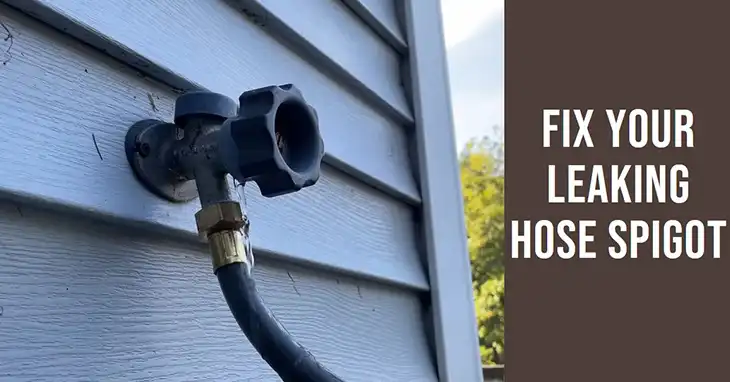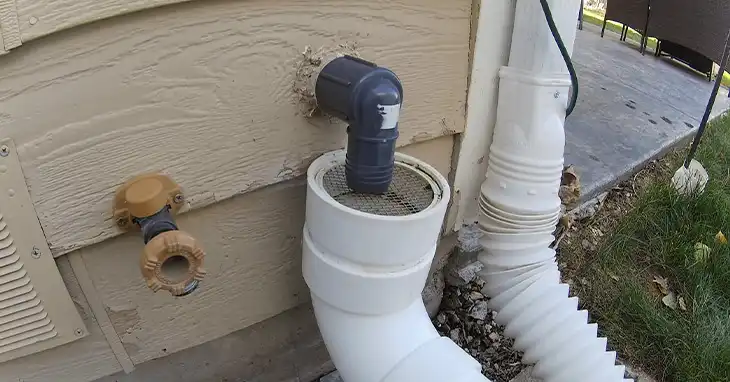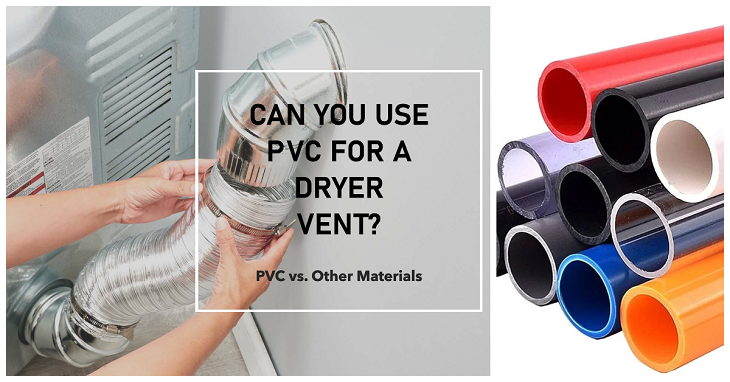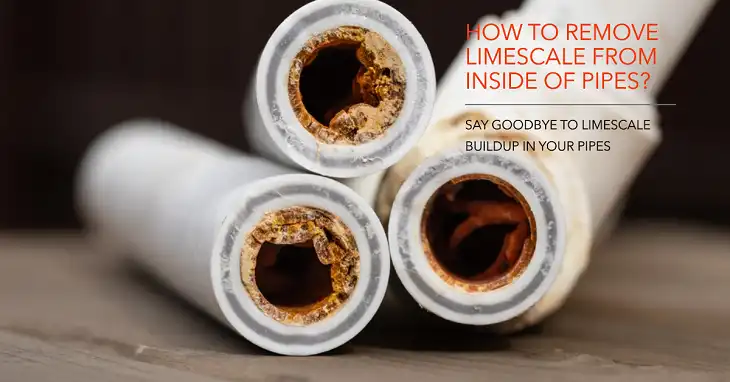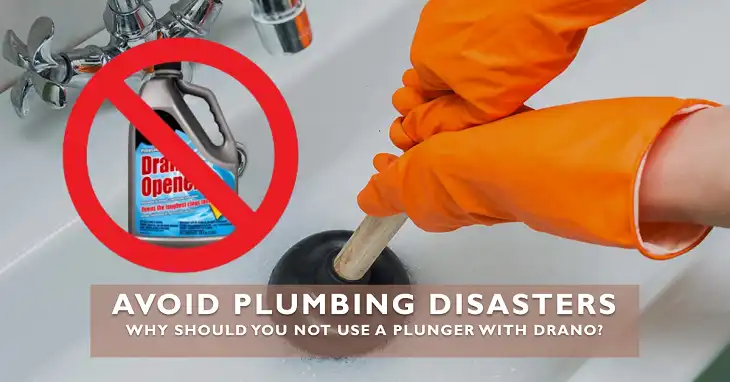Should You Insulate Your Hot Water Pipes?
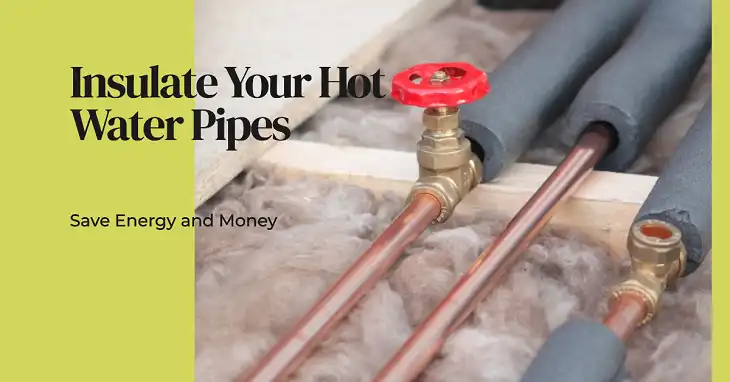
In short: Yes, insulating hot water pipes is highly recommended. It reduces heat loss, lowers energy bills, prevents freezing in cold climates, and can even help your hot water reach the tap faster.
When you turn on the hot water tap, you expect warm water to flow immediately. However, in many homes, there’s a noticeable delay as the hot water makes its journey from the water heater to your faucet. This wait isn’t just an inconvenience; it’s also a waste of water and energy. The solution to this and several other plumbing issues lies in a simple yet effective practice: insulating your hot water pipes.
Why You Should Insulate Your Hot Water Pipes
Insulating hot water pipes might seem like a minor home improvement, but its benefits are far-reaching and significant. Let’s delve into why this simple task can make a big difference in your home.
It Prevents Heat Loss
First and foremost, insulation acts as a barrier against heat loss. As hot water travels through your pipes, it naturally loses some of its heat to the surrounding air. This is especially true in unheated areas of your home like crawl spaces, basements, or attics. By wrapping your pipes in insulation, you create a thermal barrier that keeps the heat where it belongs – in your water.
It Saves Energy
This reduction in heat loss translates directly into energy savings. The U.S. Department of Energy estimates that insulating hot water pipes can raise water temperature by 2°F–4°F compared to uninsulated pipes. This means your water heater doesn’t have to work as hard to maintain the desired temperature, leading to lower energy bills. In fact, some homeowners report energy savings of up to 10% after insulating their hot water pipes.
It Prevents Freezing
In colder climates, pipe insulation serves another crucial function: preventing freezing. When temperatures plummet, the water in uninsulated pipes can freeze, expanding and potentially causing the pipes to burst. This can lead to extensive water damage and costly repairs. Proper insulation acts as a buffer against the cold, significantly reducing the risk of frozen pipes.
It Reduces Wait Time for Hot Water
Another benefit that many homeowners appreciate is the reduced wait time for hot water. Insulated pipes retain heat better, meaning the water stays warmer for longer periods of time. This can result in hot water reaching your faucet up to several seconds faster than with uninsulated pipes. While this might not seem like much, it adds up over time, saving both water and the energy needed to heat it.
How to Choose the Right Insulation for Your Hot Water Pipes

When it comes to insulating hot water pipes, you have several options. The most common types of pipe insulation include:
- Foam pipe sleeves: These pre-slit tubes are easy to install and work well for both hot and cold water pipes.
- Fiberglass wrap: This is an excellent option for pipes that are irregularly shaped or in tight spaces.
- Rubber pipe insulation: Known for its durability and resistance to moisture, this is a good choice for areas prone to condensation.
The type of insulation you choose will depend on factors such as the pipe material, pipe diameter, and the location of the pipes in your home. For most residential applications, foam pipe sleeves are sufficient and easy to install as a DIY project.
How to Insulate Your Hot Water Pipes

Insulating your hot water pipes is a task that many homeowners can tackle themselves. Here’s a general overview of the process:
- Measure your pipes: Determine the diameter of your pipes and the total length you need to insulate.
- Purchase materials: Buy insulation sleeves or wrap that fit your pipes, along with tape or fasteners to secure them.
- Clean the pipes: Ensure the pipes are clean and dry before applying insulation.
- Apply the insulation: Slide foam sleeves onto the pipes or wrap fiberglass insulation around them, ensuring a snug fit.
- Secure the insulation: Use tape or cable ties to keep the insulation in place, especially at joints and bends.
- Insulate valves and fittings: Don’t forget to insulate around valves and fittings using specialized products or by carefully cutting and fitting standard insulation.
Other Insulation Tips
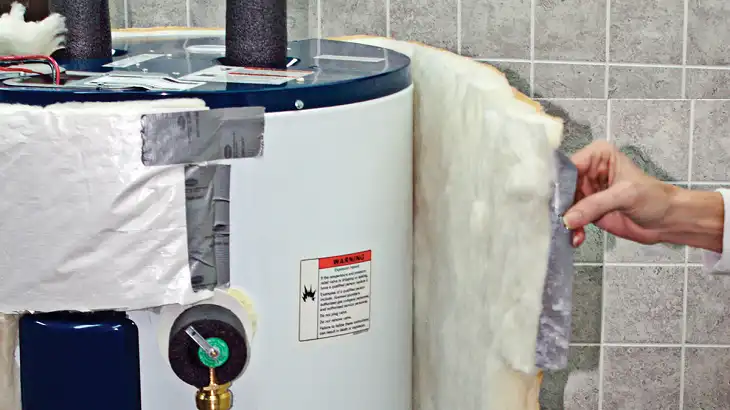
While insulating your hot water pipes is an excellent step towards energy efficiency, it’s not the only measure you can take. Consider these additional steps to maximize your home’s energy efficiency:
- Insulate your water heater: An insulating blanket can reduce standby heat loss by 25%–45%.
- Adjust your water heater temperature: Setting it to 120°F is sufficient for most households and can save energy.
- Install low-flow fixtures: These can reduce your hot water usage without sacrificing performance.
- Consider a tankless water heater: These heat water on demand, potentially saving more energy in the long run.
The Bottom Line
Insulating your hot water pipes is a relatively simple task that can yield significant benefits. From energy savings and faster hot water delivery to pipe protection in cold weather, the advantages are clear. Whether you choose to tackle the job yourself or hire a professional, insulating your hot water pipes is an investment in your home’s efficiency and comfort that pays dividends year after year.
Remember, every home is different, and what works best for one may not be ideal for another. If you’re unsure about the best approach for your specific situation, don’t hesitate to consult with a licensed plumber. They can provide personalized advice and ensure that your hot water system is operating at peak efficiency, keeping you comfortable while saving energy and money.

